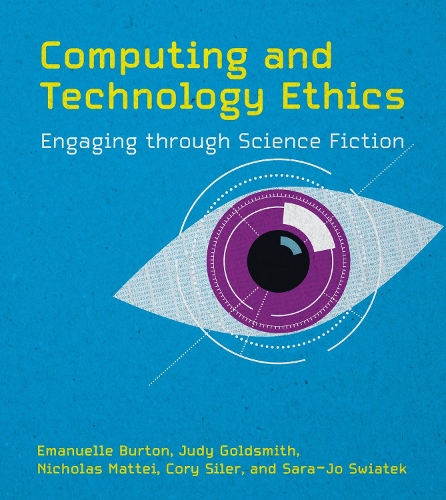
Computing and Technology Ethics
(Hardback)
Publishing Details
Computing and Technology Ethics
By (Author) Emmanuelle Burton
By (author) Judy Goldsmith
MIT Press Ltd
MIT Press
14th March 2023
United States
Classifications
General
Non Fiction
174.96
Physical Properties
Hardback
464
Width 203mm, Height 229mm
Description
A new approach to teaching computing and technology ethics using science fiction stories. Should autonomous weapons be legal Will we be cared for by robots in our old age Does the efficiency of online banking outweigh the risk of theft From communication to travel to medical care, computing technologies have transformed our daily lives, for better and for worse. But how do we know when a new development comes at too high a cost Using science fiction stories as case studies of ethical ambiguity, this engaging textbook offers a comprehensive introduction to ethical theory and its application to contemporary developments in technology and computer science. Computing and Technology Ethics Engaging through Science Fiction first introduces the major ethical frameworks deontology, utilitarianism, virtue ethics, communitarianism, and the modern responses of responsibility ethics, feminist ethics, and capability ethics. It then applies these frameworks to many of the modern issues arising in technology ethics including privacy, computing, and artificial intelligence. A corresponding anthology of science fiction brings these quandaries to life and challenges students to ask ethical questions of themselves and their work. Uses science fiction case studies to make ethics education engaging and fun Trains students to recognize, evaluate, and respond to ethical problems as they arise Features anthology of short stories from internationally acclaimed writers including Ken Liu, Elizabeth Bear, Paolo Bacigalupi, and T. C. Boyle to animate ethical challenges in computing technology Written by interdisciplinary author team of computer scientists and ethical theorists Includes a robust suite of instructor resources, such as pedagogy guides, story frames, and reflection questions
Author Bio
Emanuelle Burton is a Lecturer in the Department of Computer Science at the University of Illinois Chicago, where she teaches courses in ethics. Judy Goldsmith is Professor of Computer Science at the University of Kentucky. Nicholas Mattei is Assistant Professor of Computer Science at Tulane University. Cory Siler is a Graduate Research Assistant in the Narrative Intelligence Lab at the University of Kentucky. Sara-Jo Swiatek earned her PhD in ethics from the University of Chicago.
